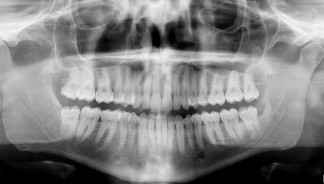Near to the end of the roots of lower third molars (wisdom teeth) there is a nerve that supplies the lower lip. Another nerve near these teeth supplies one side on the tongue. While every care is taken during removal of wisdom teeth, these nerves can be inadvertently damaged during the process. This damage is an undesirable and not very common, especially in younger patients, but it is a known complication of third molar removal and therefore always a possibility. No guarantees can be given that it will not occur.
Where there is damage to the nerve, there is no treatment. However, a proportion of these cases resolve over time and sensation returns to normal. In some cases the damage is permanent.
We always take an x-ray to give us some idea of the position of the nerve canal but x-rays are two-dimensional and therefore limited. Where we feel that nerve damage is more likely we will recommend referral to a Maxillo-facial Surgeon. They too get nerve damage occasionally but their greater degree of skill helps to keep it to a minimum, even where the nerves lie close to the tooth. You are always welcome to request a specialist referral, even in the cases where the indications are that the risk is small.
As patients age their bone becomes harder and more calcified, with less blood vessels. Healing is slower and the flexibility of the bone is less as you get older, making extractions more difficult and nerve damage more common (but still uncommon). We recommend that where there is little room for lower wisdom teeth to erupt normally, they be removed at a younger age (preferably before aged 23 or 24) because the risks of complications are less than at an older age.
 479 Marrickville Road
479 Marrickville Road